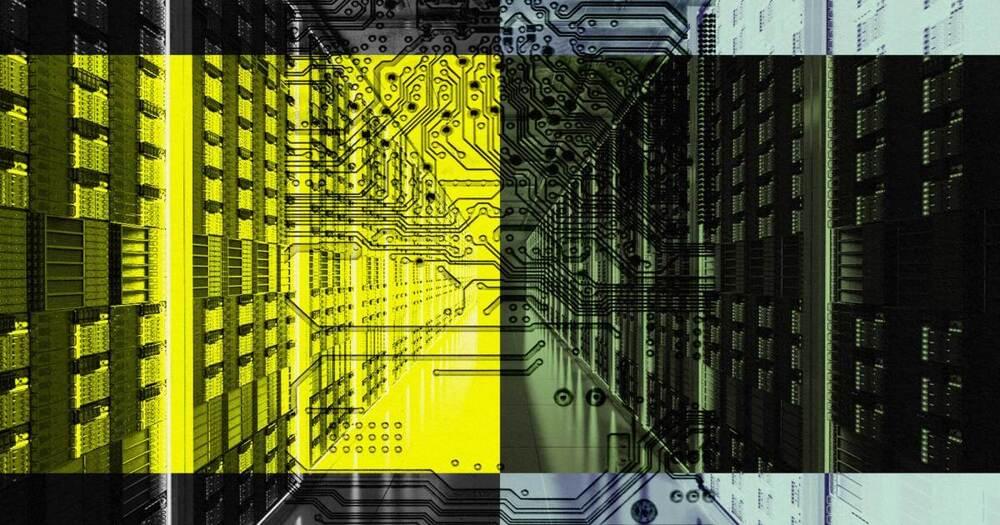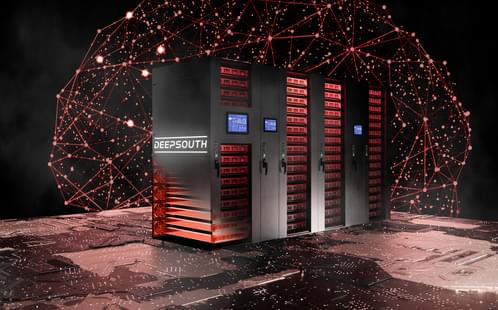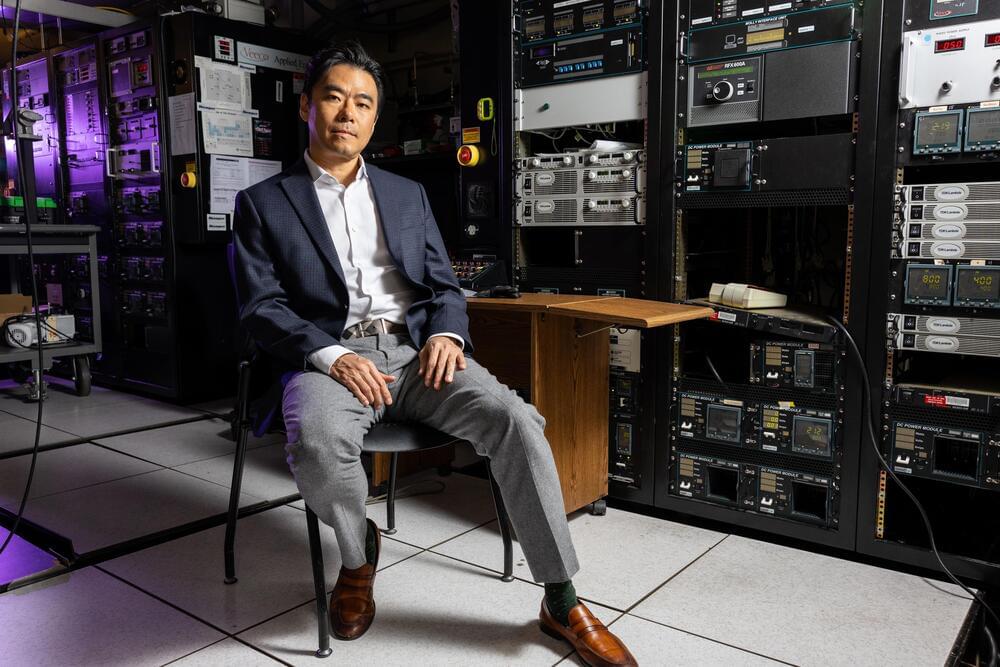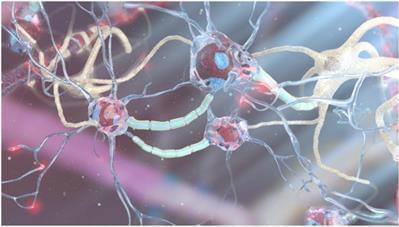Microsoft is reportedly planning to build a $100 billion data center and supercomputer, called “Stargate,” for OpenAI.




😗😁😘 year 2023.
The world’s first supercomputer capable of simulating networks at the scale of the human brain has been announced by researchers at the International Centre for Neuromorphic Systems (ICNS) at Western Sydney University.
DeepSouth uses a neuromorphic system which mimics biological processes, using hardware to efficiently emulate large networks of spiking neurons at 228 trillion synaptic operations per second — rivalling the estimated rate of operations in the human brain.
ICNS Director, Professor André van Schaik says DeepSouth stands apart from other supercomputers as it is purpose-built to operate like networks of neurons, requiring less power and enabling greater efficiencies. This contrasts with supercomputers optimised for more traditional computing loads, which are power hungry.

Ching-Yao Tang and Ke-Jung Chen used the powerful supercomputer at Berkeley National Lab to create the world’s first high-resolution 3D hydrodynamics simulations of turbulent star-forming clouds for the first stars. Their results indicate that supersonic turbulence effectively fragments the star-forming clouds into several clumps, each with dense cores ranging from 22 to 175 solar masses, destined to form the first stars of masses of about 8 to 58 solar masses that agree well with the observation.
Furthermore, if the turbulence is weak or unresolved in the simulations, the researchers can reproduce similar results from previous simulations. This result first highlights the importance of turbulence in the first star formation and offers a promising pathway to decrease the theoretical mass scale of the first stars. It successfully reconciles the mass discrepancy between simulations and observations, providing a strong theoretical foundation for the first star formation.

A recently tenured faculty member in MIT’s departments of Mechanical Engineering and Materials Science and Engineering, Kim has made numerous discoveries about the nanostructure of materials and is funneling them directly into the advancement of next-generation electronics.
His research aims to push electronics past the inherent limits of silicon — a material that has reliably powered transistors and most other electronic elements but is reaching a performance limit as more computing power is packed into ever smaller devices.
Today, Kim and his students at MIT are exploring materials, devices, and systems that could take over where silicon leaves off. Kim is applying his insights to design next-generation devices, including low-power, high-performance transistors and memory devices, artificial intelligence chips, ultra-high-definition micro-LED displays, and flexible electronic “skin.” Ultimately, he envisions such beyond-silicon devices could be built into supercomputers small enough to fit in your pocket.

Computer simulations are giving us new insight into the riotous behavior of cannibal neutron stars.
When a neutron star slurps up material from a close binary companion, the unstable thermonuclear burning of that accumulated material can produce a wild explosion that sends X-radiation bursting across the Universe.
How exactly these powerful eruptions evolve and spread across the surface of a neutron star is something of a mystery. But by trying to replicate the observed X-ray flares using simulations, scientists are learning more about their ins and outs – as well as the ultra-dense neutron stars that produce them.

Process, and store data, most of which is handled by the rapidly expanding cloud. A stable, secure, real-time system may allow for interfacing the cloud with the human brain. One promising strategy for enabling such a system, denoted here as a “human brain/cloud interface” (“B/CI”), would be based on technologies referred to here as “neuralnanorobotics.” Future neuralnanorobotics technologies are anticipated to facilitate accurate diagnoses and eventual cures for the ∼400 conditions that affect the human brain. Neuralnanorobotics may also enable a B/CI with controlled connectivity between neural activity and external data storage and processing, via the direct monitoring of the brain’s ∼86 × 109 neurons and ∼2 × 1014 synapses. Subsequent to navigating the human vasculature, three species of neuralnanorobots (endoneurobots, gliabots, and synaptobots) could traverse the blood–brain barrier (BBB), enter the brain parenchyma, ingress into individual human brain cells, and autoposition themselves at the axon initial segments of neurons (endoneurobots), within glial cells (gliabots), and in intimate proximity to synapses (synaptobots). They would then wirelessly transmit up to ∼6 × 1016 bits per second of synaptically processed and encoded human–brain electrical information via auxiliary nanorobotic fiber optics (30 cm3) with the capacity to handle up to 1018 bits/sec and provide rapid data transfer to a cloud based supercomputer for real-time brain-state monitoring and data extraction. A neuralnanorobotically enabled human B/CI might serve as a personalized conduit, allowing persons to obtain direct, instantaneous access to virtually any facet of cumulative human knowledge. Other anticipated applications include myriad opportunities to improve education, intelligence, entertainment, traveling, and other interactive experiences. A specialized application might be the capacity to engage in fully immersive experiential/sensory experiences, including what is referred to here as “transparent shadowing” (TS). Through TS, individuals might experience episodic segments of the lives of other willing participants (locally or remote) to, hopefully, encourage and inspire improved understanding and tolerance among all members of the human family.
“We’ll have nanobots that… connect our neocortex to a synthetic neocortex in the cloud… Our thinking will be a… biological and non-biological hybrid.”
— Ray Kurzweil, TED 2014

“Microsoft has demonstrated its ability to build pioneering AI infrastructure used to train and deploy the world’s leading AI models,” a Microsoft spokesperson told the site. “We are always planning for the next generation of infrastructure innovations needed to continue pushing the frontier of AI capability.”
Needless to say, that’s a mammoth investment. As such, it shines an even brighter spotlight on a looming question for the still-nascent AI industry: how’s the whole thing going to pay for itself?
So far, most companies in the space — Microsoft and OpenAI included — have offered significant AI services for free, sometimes with a more advanced upsell version like OpenAI’s ChatGPT Plus.
Microsoft and OpenAI might be concocting a $100 billion supercomputer to accelerate their artificial intelligence models.

According to insiders, Microsoft and OpenAI are planning to build a $100 billion supercomputer called “Stargate” to massively accelerate the development of OpenAI’s AI models, The Information reports.
Microsoft and OpenAI executives are forging plans for a data center with a supercomputer made up of millions of specialized server processors to accelerate OpenAI’s AI development, according to three people who took part in confidential talks.
The project, code-named “Stargate,” could cost as much as $100 billion, according to one person who has spoken with OpenAI CEO Sam Altman about it and another who has seen some of Microsoft’s initial cost estimates.